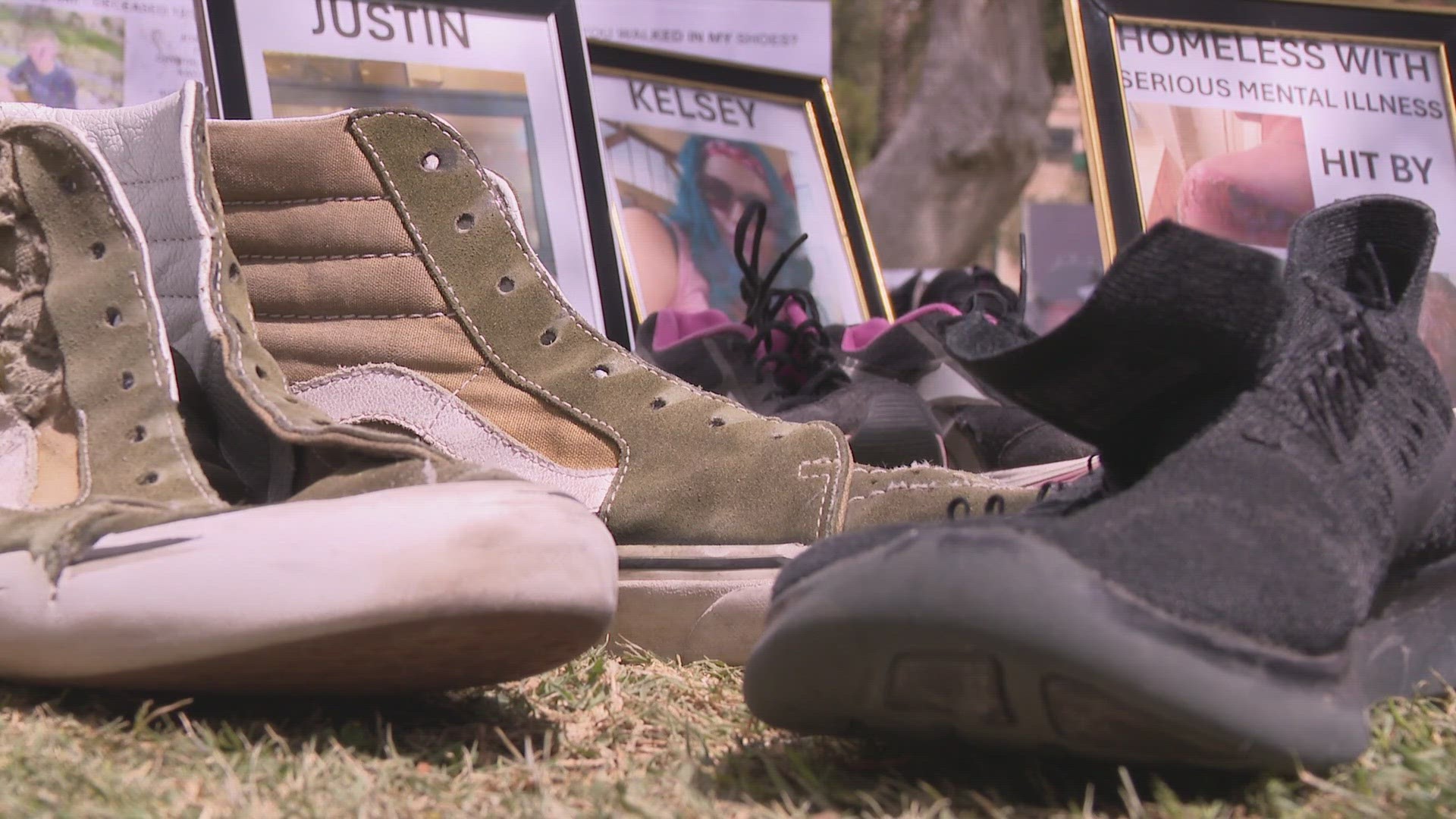PHOENIX — Arizona ranks 49th in the nation for mental health care and accessibility, according to one study. A bill in the Arizona House looks to change that by throwing $50 million at the problem.
Advocates for those suffering from mental illness — and the bill that would allocate the money — gathered at the State Capitol Monday as part of Mental Health Day.
The dozen or so groups that took part in the event are lobbying lawmakers to work on solutions for mental health care in Arizona.
According to the group Mental Health America, a national non-profit that advocates for mental health care and prevention, Arizona ranks 49th in the nation for mental health care and accessibility.
Not enough beds
“Over the last couple of decades, those beds, those services have really dwindled,” said Rachel Streiff, of Arizona Mad Moms. “Statistically, for a population the size of Maricopa County, we should have around 2,200 beds for acute and long-term psychiatric treatment. And we don't. That's been reduced to 55 beds, which is nothing.”
Arizona Mad Moms was formed to speak on behalf of families caring for those with serious mental illness, also known as SMI. Streiff, who has been an outspoken advocate for more resources for SMI patients, came to the Capitol Monday to push lawmakers to examine bills that would open more beds at psychiatric hospitals for SMI patients.
House Bill 2782 would appropriate $50,000,000 from the Arizona Health Care Cost Containment System- also known as AHCCCS- to establish five secure behavioral health residential facilities for individuals experiencing homelessness.
“A lot of our kids- and I hear this over and over from families- are trying to get their loved ones into a hospital bed, into a psychiatric treatment facility, because there's such a shortage of beds and services for serious mental illness in Arizona,” Streiff explained. “Those kids, those family members, and I'm speaking mostly about adults- adult children- they're being released often to the streets, often back to a mother who doesn't have the resources to care for that individual.”
The same bill would prohibit municipalities from adopting “or enforce any policies that directly prohibit or discourage enforcing any order or ordinance that prohibits public camping, sleeping or obstructing a public right-of-way, including roads and sidewalks.” It was the basis for a protracted lawsuit between the City of Phoenix and businesses located along “the Zone” near the Human Services Campus in 2022.
Behavioral health staffing is another issue that mental health advocates pushed for on Mental Health Day at the Capitol. Senate Bill 1036 would allow social workers licensed in other states to work in Arizona under a compact.
“That's one of our biggest concerns is we don't have the workforce that we need,” said Kristina Sebetta, the Executive Director of NAMI Valley of the Sun Chapter. “So, this would help allow social workers and counselors to practice sooner rather than later within our within our state of Arizona.”
Voices at the table
“Our biggest hope is the legislatures will learn about mental illness, learn about historically, what Arizona has done about the Arnold settlement,” said Kathy Bashor, President of the Arizona Peer and Family Coalition. “So, they know really what's going on, we're afraid they're making decisions, without really understanding the consequences.”
Advocates for mental health care want more lawmakers to discuss pending mental health bills with those who are the most impacted. Mad Moms said at the request of lawmakers, they submitted 11 bills to the legislature this session. NAMI Valley of the Sun Chapter, an organization that supports caregivers with education and advocacy, encourages those who are caring for people with mental illness to make their voices heard.
“We hear from representatives and senators all the time,” Sebetta said. “They don't hear from us. They want to hear from us. They want to hear from members of the community. They want to share your story. So, if you have a story, yourself living with mental health issues or a family member, find your legislative district, find your legislators you can go on azleg.gov and contact them. Let them know what matters and what's important to you.”
Up to Speed
Catch up on the latest news and stories on the 12News YouTube channel. Subscribe today.

